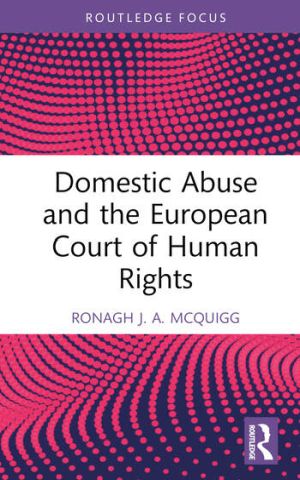
This book provides detailed critical analysis of the jurisprudence of the European Court of Human Rights on domestic abuse. Such abuse affects vast numbers of people throughout all nations of the world. Although it was not until 2007 that domestic abuse was considered substantively by the European Court of Human Rights, it has now been established that such abuse can constitute a violation of the right to life under Article 2 of the European Convention on Human Rights; the right to be free from torture or inhuman or degrading treatment under Article 3; the right to respect for private and family life under Article 8; and the prohibition of discrimination under Article 14. The book analyses how conceptualisations of domestic abuse in the Court's jurisprudence have evolved, for example, in relation to a more consistent use of Article 3 in such cases, a recognition of coercive control, and the framing of domestic abuse as gender-based discrimination. It also explores the development of the Court's understanding of domestic abuse, for example as regards to how the ‘Osman test’ should be applied in this context. Additionally, the work discusses the Court's approach to issues such as cyber violence, and child contact in the context of domestic abuse. The volume will appeal to academics and researchers from a wide variety of disciplines, such as criminal law, criminology, social policy, human rights, family law, gender studies and sociology; as well as practitioners and those in the voluntary sector who are working in the area of combating domestic abuse. The work could also be used beneficially on courses at both undergraduate and postgraduate levels which incorporate the topic of domestic abuse.